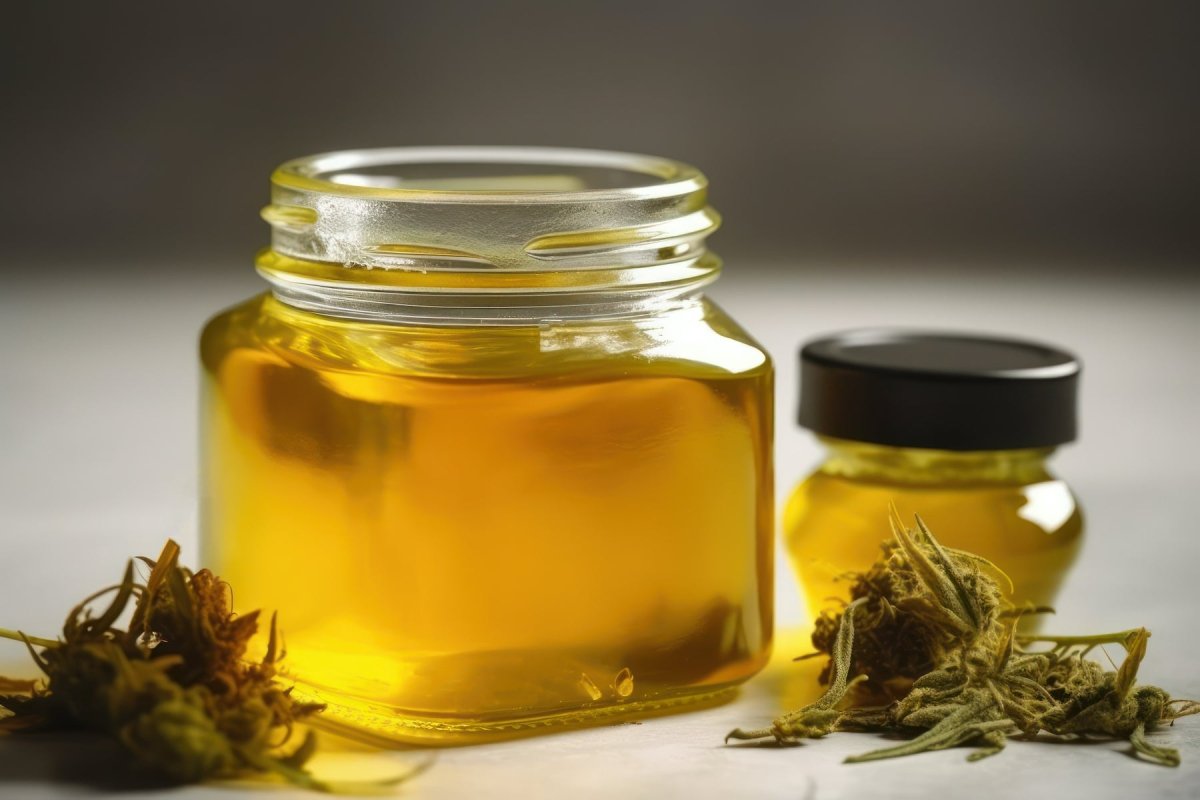Recent posts
-

-
 What Are THCa Diamonds?October 14, 2025
What Are THCa Diamonds?October 14, 2025 -
 Delta 9 Gummies GuideOctober 8, 2025
Delta 9 Gummies GuideOctober 8, 2025 -
 Head High vs Body High: A Guide to Cannabis EffectsOctober 1, 2025
Head High vs Body High: A Guide to Cannabis EffectsOctober 1, 2025 -
 What is THCA Crumble?September 22, 2025
What is THCA Crumble?September 22, 2025 -
 10 Ways to Elevate Self-Care Awareness MonthSeptember 14, 2025
10 Ways to Elevate Self-Care Awareness MonthSeptember 14, 2025

HHC vs Delta 9 THC - What's the Difference?
By Zero Point
Table of Contents
What is the Difference Between HHC and Delta 9 THC?
Welcome to our exploration of the world of cannabinoids, where we delve into the distinctions and similarities between Hexahydrocannabinol (HHC) and Delta 9-Tetrahydrocannabinol (Delta 9 THC). As the cannabis industry continues to evolve, understanding these compounds is essential for both beginners and experienced enthusiasts aiming to make informed decisions about their cannabis consumption. In this guide, we'll navigate the scientific, legal, and experiential aspects of HHC and Delta 9, shedding light on what sets them apart and how they might affect your choice of products. Whether you're seeking therapeutic benefits, recreational enjoyment, or simply curious about the latest in cannabis research, this article is designed to provide you with a comprehensive understanding of these fascinating molecules.
What is HHC?
Definition and Chemical Structure
Hexahydrocannabinol, or HHC, is a hydrogenated form of THC. The process of hydrogenation modifies the chemical structure of THC, adding hydrogen atoms. This alteration makes HHC more stable and less prone to oxidation, potentially extending its shelf life compared to other cannabinoids.
Historical Background
Discovered in the 1940s by American chemist Roger Adams, HHC has been studied for its potential therapeutic effects and unique properties. Despite its early discovery, HHC has only recently gained popularity in the consumer market, thanks to advances in cannabinoid research and extraction technologies.
Legal Status
The legal status of HHC remains a gray area in many jurisdictions. Derived from hemp, HHC can be considered legal under the 2018 Farm Bill in the United States, which legalized hemp and hemp-derived compounds. However, the regulatory landscape is evolving, and it's crucial to stay informed about local laws.
Effects and Benefits
HHC is reported to offer effects similar to THC, including euphoria, relaxation, and potential pain relief. However, user reports suggest that HHC's effects might be slightly milder and longer-lasting. This makes it an intriguing option for those seeking the benefits of cannabinoids without the intense highs associated with Delta 9 THC.
What is Delta 9 THC?
Definition and Chemical Structure
Delta 9-Tetrahydrocannabinol, commonly known as Delta 9 THC, is the most well-known psychoactive compound found in the cannabis plant. Its molecular structure is characterized by a double bond on the ninth carbon chain, a feature that contributes to its psychoactive properties. THC interacts with the body's endocannabinoid system, particularly binding to the CB1 and CB2 receptors, which influence a variety of physiological processes.
Historical Background
The history of Delta 9 THC dates back thousands of years, with its use in traditional medicines and rituals. However, it wasn't until the 20th century that scientists isolated and synthesized Delta 9 THC, leading to a deeper understanding of its effects and the discovery of the endocannabinoid system. This breakthrough paved the way for both medical and recreational cannabis research and development.
Legal Status
The legal status of Delta 9 THC is more straightforward than that of HHC but varies significantly around the world. In the United States, cannabis containing more than 0.3% Delta 9 THC is classified as marijuana, which remains federally illegal under the Controlled Substances Act. However, many states have enacted their own laws legalizing or decriminalizing cannabis for medical or recreational use.
Effects and Benefits
Delta 9 THC is renowned for its potent psychoactive effects, which can include euphoria, heightened senses, relaxation, and, in some cases, anxiety and paranoia. Beyond its recreational use, Delta 9 THC has significant therapeutic potential, offering relief from chronic pain, nausea, and appetite loss, among other conditions. Its efficacy in treating various medical issues has led to the approval of synthetic THC medications in several jurisdictions.
Key Differences Between HHC and THC
When comparing HHC and Delta 9 THC, several key differences emerge that are crucial for consumers to understand:
Chemical Structure and Synthesis
While both cannabinoids originate from the cannabis plant, the hydrogenation process that creates HHC adds hydrogen molecules to THC's structure. This process not only makes HHC more stable but also potentially affects how it interacts with the body's endocannabinoid receptors. The structural differences may account for variations in potency and effects between HHC and Delta 9 THC.
Psychoactive Effects and Potency
Delta 9 THC is known for its strong psychoactive effects, which can vary from euphoria and relaxation to anxiety and paranoia, depending on the dose and the individual's physiology. HHC, on the other hand, is reported to produce similar but generally milder and potentially more prolonged effects. This difference in potency and experience can make HHC a preferable option for those seeking a less intense or more manageable high.
Legal Status and Availability
The legal distinctions between HHC and Delta 9 THC significantly impact their availability. While Delta 9 THC's legal status is more clear-cut but restricted in many areas, HHC's legal standing remains ambiguous, allowing it to be more readily available in places where Delta 9 THC is heavily regulated or banned. However, the evolving legal landscape means that the status of both compounds could change, emphasizing the importance of staying informed about local laws.
Safety and Side Effects
Both cannabinoids can cause side effects, but due to the limited research on HHC, understanding its safety profile is more challenging. Common side effects of Delta 9 THC include dry mouth, red eyes, impaired memory, and altered time perception. The side effects of HHC are presumed to be similar, but anecdotal evidence suggests they may be less pronounced. Nevertheless, individual experiences can vary widely, and caution is advised when exploring any cannabinoid.
Applications and Usage
Delta 9 THC is widely used both recreationally and medicinally, with well-documented benefits for conditions such as chronic pain, nausea, and glaucoma. HHC's applications are less understood but are believed to include many of the same therapeutic benefits, with the added advantage of a more stable chemical structure that might appeal to both recreational users and medical patients looking for long-lasting effects.
Why the Distinction Matters
Understanding the differences between HHC and Delta 9 THC is crucial for several reasons, impacting everything from legal compliance to personal health and experience. Here's why the distinction between these two cannabinoids matters:
Legal Considerations
The legal landscape surrounding cannabis and its derivatives is complex and constantly evolving. Delta 9 THC's status as a controlled substance in many jurisdictions means that its use, possession, and distribution are subject to strict regulations. On the other hand, HHC's ambiguous legal status may offer a loophole for those in areas where Delta 9 is banned, but this comes with its own set of risks, including the potential for future regulation. Navigating these legal nuances is essential for consumers who wish to remain compliant with local laws.
Health and Safety Implications
As with any substance that affects the body's physiological and psychological functions, understanding the health and safety implications of HHC and Delta 9 THC is paramount. The differing potency and effects of these cannabinoids can influence their suitability for individuals with varying health conditions, tolerances, and treatment goals. Additionally, the relative novelty of HHC means there's less research on its long-term effects, making informed decision-making critical for those concerned about health and safety.
Personal Preferences and Experiences
Individual responses to cannabinoids can vary widely due to factors like body chemistry, tolerance levels, and personal preferences. Some may find Delta 9 THC's potent effects desirable, while others may prefer the milder, potentially more manageable experience offered by HHC. Additionally, the duration of effects, onset time, and other experiential aspects may influence one's choice between HHC and Delta 9 THC. Understanding the distinctions between these compounds allows consumers to tailor their cannabis experience to their specific needs and expectations.
Choosing Between HHC and Delta 9
Deciding whether HHC or Delta 9 THC is the right choice depends on a variety of factors, including legal status, desired effects, and health considerations. Here are some guidelines to help make an informed decision:
- Legal Status: Always check the current laws in your jurisdiction regarding HHC and Delta 9 THC. Legal considerations should be the primary factor in your decision to ensure compliance and avoid legal repercussions.
- Desired Effects: If you're looking for potent psychoactive effects, Delta 9 THC might be the preferable choice. For those seeking a milder experience or concerned about anxiety and paranoia, HHC could offer a suitable alternative.
- Health Considerations: Individuals with specific health conditions or concerns should consult a healthcare professional before using either compound. This is especially important for those taking medications that may interact with cannabinoids.
- Personal Preferences: Consider factors like the onset of effects, duration, and method of consumption. Personal experience and experimentation may also play a role in determining which cannabinoid best meets your needs.
Making an informed choice between HHC and Delta 9 THC involves weighing these factors carefully and considering your personal circumstances and goals.
Conclusion
In navigating the complex landscape of cannabinoids, understanding the distinctions between HHC and Delta 9 THC is crucial for anyone looking to explore the therapeutic and recreational potential of cannabis. From chemical structure and legal status to effects and applications, these differences matter significantly in making informed choices that align with legal requirements, health considerations, and personal preferences.
As the cannabis industry evolves, staying informed and consulting with healthcare professionals can help ensure a safe and positive experience. Whether you lean towards the established path of Delta 9 THC or the emerging potential of HHC, the key is to approach your cannabis journey with knowledge and caution.
We encourage readers to continue researching and engaging with the cannabis community to deepen their understanding of these fascinating compounds. Remember, the world of cannabinoids is vast and varied, offering unique experiences and benefits that cater to a wide range of needs and preferences.








